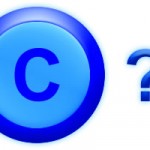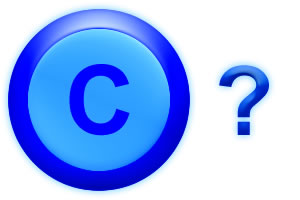 In this article we talk about how to copyright an idea. Have you a written a new ebook that you would like to distribute or a new song that you would like to publish? Do you have an idea for a movie script that you would like to shop around? Have you developed a new app for smart-phones that you would like to sell online?
In this article we talk about how to copyright an idea. Have you a written a new ebook that you would like to distribute or a new song that you would like to publish? Do you have an idea for a movie script that you would like to shop around? Have you developed a new app for smart-phones that you would like to sell online?
You understand that to protect your ideas from being “stolen” before you get the chance to reap the financial benefits of your creative expression, you need to copyright your ideas. However, intellectual property laws have always confused you and spending money on an attorney, to help you through what you truly believe should be a simple endeavor, is out of the question.
Luckily for you, once you get past the rhetoric, it is truly simple to copyright an idea. Below, we will discus various aspects of copyright protection and how to obtain a copyright.
So Can You Copyright An Idea?
A copyright protects the original expression of an idea. Such as, the way a book is written or the way a dance is performed, not the ideas they express.You cannot copyright an idea per se. You must first convert that idea into something tangible. This means by writing it down or recording it.
Requirements For Copyright
To receive a copyright, your idea must meet these two requirements:
1. The idea must be original, meaning not copied from someone else
2. The idea must be reduced into a tangible form of expression, which can be reproduced or otherwise communicated, such as on paper, cd, dvd or similar.
What A Copyright Does
A copyright grants you the exclusive right to reproduce, sell or distribute your idea. This is more accurately a “negative right” to prevent others from reproducing, selling or distributing your idea.
What a Copyright Protects
Copyright protects written works, musical scores and lyrics, dramatic works, choreographic works, pictorial, graphic and sculptural works, motion pictures and other audio visual works, sound recordings and architectural works.
What a Copyright Does Not Protect
Copyright does not protect ideas (such as insights, facts and statistic), patentable subject matter, names, titles, short phrase and slogans, familiar symbols or designs, list of items (as opposed to explanations), oral works which are not reduced to tangible form (such as speeches or vocal performances) or works consisting of common property (like the the standard calendar).
How To Copyright An Idea
Copyright is automatically secured when a work is created. No further notice or registration is required. However, there are certain advantages to registering a copyright. Some of these advantages are as follows:
- Registration provides a public record of your copyright
- If you register within the first 5 years of the publication of your idea, your registration will be considered prima facie evidence in a court of law.
- If you happen to win that court case, a registered work makes you eligible to receive statutory damages and attorney’s fees.
How To Register A Copyright
You may register at anytime during the life of your copyright. To do so, visit the Library of Congress website, download and fill out the appropriate form for the type of work you wish to register. You then need to mail the it back to the Library of Congress along with a copy of your work and the appropriate registration fee.
Alternatively, to receive a lower filing fee, faster processing time and other advantages, you can register your work online through the Library of Congress’ electronic Copyright Office (eCO).
In summary, to copyright an idea you need to 1) reduce your original idea into tangible form, 2) make sure it is eligible for copyright, 3) visit the Library of Congress website, 4) fill out the appropriate form, 5) deposit a copy of your work and 6) pay the registration fee. It’s as simple as that.

Leave a Reply